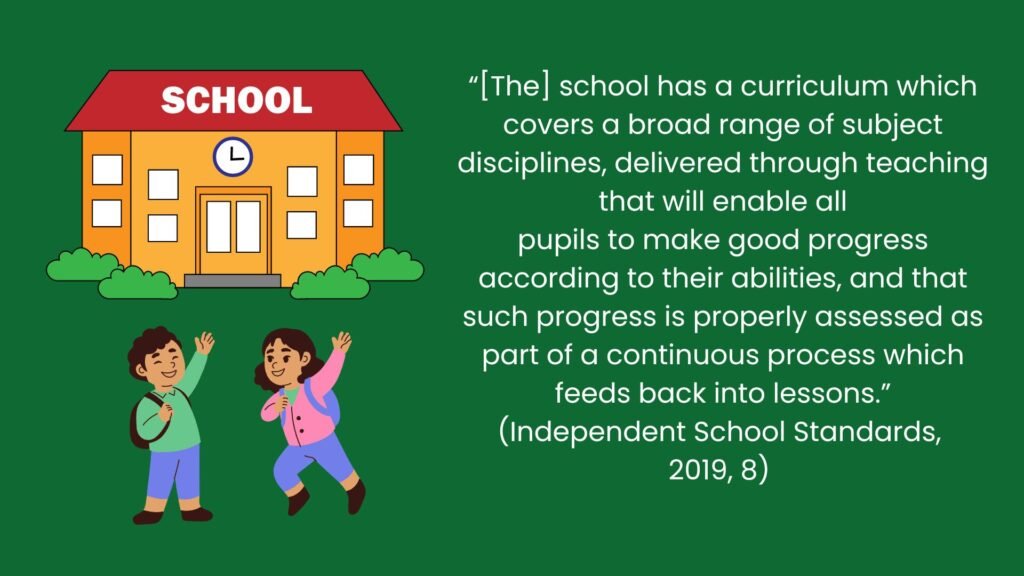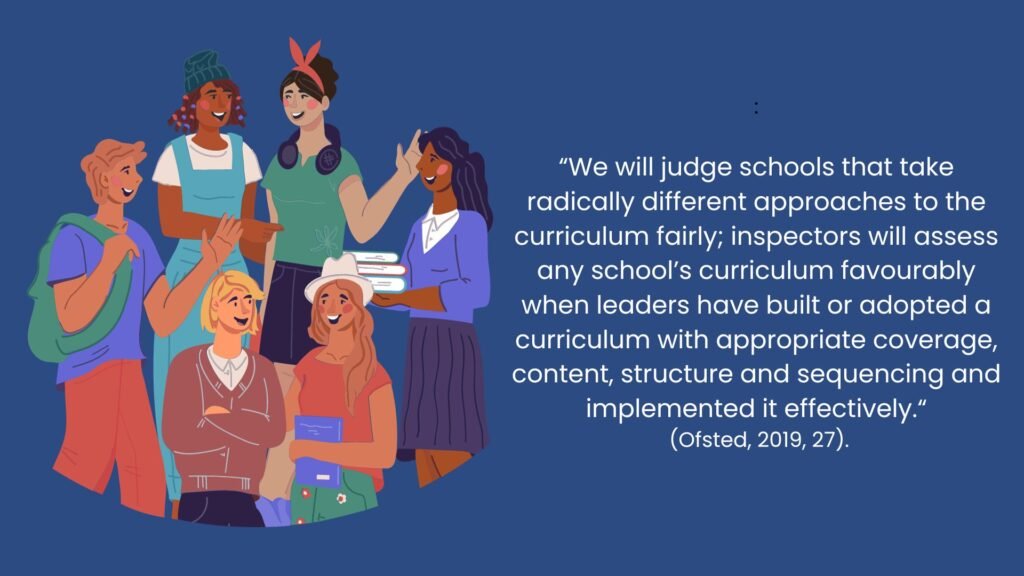“Why register with Ofsted as an Alternative Provision?
The SEND and AP Improvement Plan (March 2023) suggests that Ofsted will likely become more directly involved with monitoring “un-registered” provision in the future. The question of whether to register with the Department for Education as a school is becoming more and more prescient for many alternative education providers.
In the world of so-called “un-registered” alternative provision, Ofsted registration can feel like the wrong choice for a small organisation. The administrative burden alone can be overwhelming. Additionally, the shift from working in a highly bespoke way tailored to the individual student to a more structured “school-like” provision can be extremely challenging.
I worked as senior leader in an AP which found itself needing to register with the inspectorate. The provision had been operating successfully (registered with two local authorities) for sixteen years prior to registration as a school. I understand the complexity of needing to take staff and students on a journey that many did not sign up for. I have also experienced the frustration of trying to fit an odd shaped peg in a square hole in order to meet a set of requirements that sometimes feel like they are designed to make innovation impossible.
An Ofsted experience in Alternative Provision
Ofsted registration can be a tricky process for small organisations. This is partly because the prerequisites for being a school (a permanent building, outdoor space, a formal curriculum, and a qualified Head Teacher, to name a few) are often the things without which APs can operate more flexibly than maintained alternative settings. Often, the very components that make a school recognisable as a school seem like an unhelpful model for provisions whose students thrive on more relational, less traditional forms of learning.
In my time as a leader we experienced two full three-day Ofsted inspections in an AP that had previously been “unregistered”. Both were physically and emotionally draining processes. Despite this, my experience (and that of my colleagues) was mostly positive and in some ways highly generative.
Ofsted has found itself under increased scrutiny in recent months following the tragic death by suicide of Reading Headteacher Ruth Perry. So, I say this with an acknowledgement of the very real and damaging impact that a difficult inspection can have on those involved. I also feel strongly that a change to the high stakes and low support inspection process is also long overdue.
My own experience, even when the overall result was not as good as I had hoped, is that our inspections were fair. I want to reflect on my most recent inspection experience as it pertains to the curriculum for which I was personally responsible. I want to do this because the experience revealed some of the positives about the current Ofsted inspection framework as it relates to alternative provisions, as well as the more obvious shortcomings.

AP Ofsted inspection through the lens of curriculum
The Quality of Education section of the Ofsted inspection covers a range of requirements for Independent Special Schools. In particular, the need to demonstrate a “broad and balanced curriculum” that is:
- appropriately documented
- logically sequenced
- differentiated for individual needs
- has fundamental British values embedded
- flexes to lower abilities but provides challenge for more able students.
In our AP, we had a bespoke curriculum, having decided that the National Curriculum would not be appropriate for our students. When I took on the role, I focussed on whether the existing bespoke curriculum we had designed (ahead of our first full inspection in 2018) met the criteria set out in the new 2019 Independent School Standards.
We were sure that the selection of subjects covered the necessary linguistic, numerical, technological, scientific, human and social, physical and creative and aesthetic ground. We were less convinced that we could show Ofsted inspectors that sessions were fully planned and sequenced in a way that would make sense to them. This was because our students made progress in nonlinear ways that were hard to plan for and even harder to record sometimes.
The challenge for getting a bespoke curriculum “signed off” by Ofsted
The challenge was to create a system or process that allowed staff to plan sessions using schemes of work just like in a mainstream setting. However, we also needed with the flexibility to dart about and map cross-curricular outcomes when (as was inevitable) students covered the ground in very different ways. This was hugely difficult.
We needed to show that there was an ideal plan and a direction of travel for each “subject” that was fully sequenced and allowed us to operate in a “best case scenario” way. But, we also needed to convince staff that schemes of work would be adaptable enough to allow dynamic planning for the issues they faced day to day.
For example, staff often had to:
- switch subjects to suit students’ interests and needs
- change venues due to challenging behaviour or sensory overload
- cater for huge gaps in underpinning knowledge
- work around long periods of school refusal
- deliver to mixed age groups with varying levels of SEND.

What Ofsted says about being “radically different” in Alternative Provision
Ofsted’s most recent inspection handbook for Independent Schools states that:
We will judge schools that take radically different approaches to the curriculum fairly; inspectors will assess any school’s curriculum favourably when leaders have built or adopted a curriculum with appropriate coverage, content, structure and sequencing and implemented it effectively (27).
I wanted to take this at face value, but I’d heard horror stories about schools whose inspection outcomes had been adversely affected by the personal preferences and assumptions of inspectors with no experience in alternative provisions or special schools.
I was incredibly anxious that inspectors just wouldn’t “get” us or our students. This made my team and I focus all the more on refining a curriculum policy which would explain exactly why each subject was appropriate to the needs and aspirations of our students, and how each set of learning goals could be broken down over time in a way that allowed for a fair bit of “jumping” around. We wanted to demonstrate how ambitious we were for our learners whilst recognising that their individual journeys were never straightforward; progress would need to be measured and understood in the context of their own starting points.
I was genuinely relieved to find that the inspectors recognised that, as a setting, we had put something meaningful together that was “well planned and sequenced” and moved students on from where they had been educationally “stuck”. The feedback was really positive and allowed us to feel a sense of confidence in what we were doing.
Squaring the circle of a “radically different” curriculum
I have reflected a lot since that inspection. I believe that it is possible to satisfy Ofsted while adopting a “radically different” approach but that it is a lot of hard work. In order to make it make sense, we had to use as our basis a very traditional model for sequencing a curriculum: year group based schemes of work for each “subject”. The radical bit came more from finding ways to use technology to track the various steps backwards and forwards across the curriculum so that it didn’t present like we were making it up as we went along.
Learning to talk the inspectors’ language was also key. To do this we had to fully understand what else was out there in other settings and precisely why existing curricula wouldn’t work for us. We had to be able to provide justification for why we were doing things differently beyond the fact that our students really enjoyed it (despite knowing that, for us, this was the most important thing).
There were other parts of the inspection that were harder. At times it felt like one of the inspectors was unsettling the students and lacked a full understanding of the impact of his own presence and practice. Though Quality of Education was deemed to be good, there was also feedback about reading progress that made us feel like we were being penalised for working with students with very low levels of literacy. We were questioned fairly robustly about our approach to PE (breadth of experience over mastery of one or two sports) and were told it was “fine” but it still made it into our inspection report as a negative. All of this was a bit annoying given the huge strides we had made in these areas since our previous inspection.
Conclusions
What I want to conclude by saying is that school registration after being an AP is not for the faint hearted – it takes a lot of work and can be incredibly daunting when you are working in “radical” ways. It is, however, do-able. My experience is that Ofsted inspections are rigorous, exhausting, and sometimes difficult not to internalise but they are also possible to get through if you are an alternative provision wanting to register as a school. It is not always a fun experience, but it can be done.
The trick is to really understand your purpose: know your students and advocate very clearly and logically for exactly how your approach meets their educational and other needs. If you can focus on that, a lot of the rest of the curriculum will follow.

